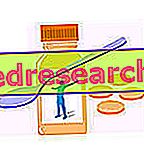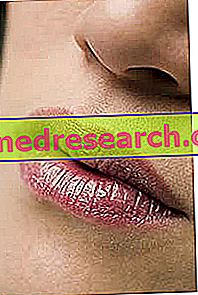Definition
The terms "black vomit", "typhoid itteroid" and "yellow fever" are synonymous, and are referred to an infectious disease with an acute course caused by bites of infected mosquitoes; we are talking about a very serious health problem, typical of the tropical countries of central Africa and the south-Saharan area. In Europe, Asia and Oceania, yellow fever is not an alarming problem.
Causes
Just like malaria, yellow fever is a disease transmitted by the bite of infected mosquitoes; unlike malaria, however, the responsible aetiopathological agent is a virus (not a parasite) belonging to the genus Flavivirus, and the vector is represented by mosquitoes of the genus Aedes.
Symptoms
Yellow fever is called by this name for the peculiar jaundice that the patient infected with the virus assumes: jaundice is caused by hyperbilirubinemia and liver failure that characterize the disease. In addition to jaundice, yellow fever can cause chills, convulsions, high fever, bradycardia, conjunctival hyperaemia, hypoglycemia, back pain, headache, nausea, proteinuria.
Flavivirus → mosquito gen. Aedes → contagion: the infected mosquito stings the man → replication of the virus in the human hepatic, renal and gastric cells → eosinophilic degeneration of liver cells + tissue necrosis → hyperbilirubinemia → jaundice
Information on Yellow Fever - Drugs for the Treatment of Yellow Fever are not intended to replace the direct relationship between health professional and patient. Always consult your doctor and / or specialist before taking Yellow Fever - Drugs for the Treatment of Yellow Fever.
drugs
The cure for yellow fever is purely symptomatic, since there is no universally recognized antiviral drug as effective in treating the disease. In the case of a diagnostic diagnosis of yellow fever, it is recommended to:
- maintaining the electrolyte balance of the patient through the administration of liquids and mineral salts
- regulate blood pressure
- cure any secondary infections
- subject the patient to dialysis for possible renal failure
- carry out transfusions of blood products to the patient, in case of need
In extreme cases, when possible, the patient undergoes a liver transplant.
The treatment for yellow fever is therefore symptomatic and consists essentially in the administration of drugs useful for lowering fever and alleviating the secondary symptoms that accompany the disease; the most widely used drugs in therapy are non-steroidal analgesics (NSAIDs) and some salicylates (eg acetylsalicylic acid).
Although there is no effective drug for the treatment of yellow fever, as often happens vaccination can prevent the disease; it is recommended to undergo a cycle of vaccines before going to countries where the possibility of being infected is very high or where the disease is endemic. Generally, immunization lasts for life, but it is recommended to repeat preventive therapy every 10 years (if necessary).
- Ibuprofen (eg. Brufen, Moment, Subitene): to lighten the pain associated with yellow fever, it is recommended to take a dose of drug ranging from 200 to 400 mg, orally, every 4-6 hours, as needed. Do not exceed 400 mg per dose. In some cases, it is possible to take the drug intravenously, at an indicative dose of 400-800 mg within 30 minutes, every 6 hours, as needed. It is also possible to take the drug to lower fever, although paracetamol is certainly the best drug for this purpose.
- Naproxen (eg. Aleve, Naprosyn, Prexan, Naprius): indicatively, take 250-500 mg of naproxen or 275-550 mg of naproxen sodium orally, twice a day. For the maintenance dose, it is possible to increase the dosage up to 1500 mg of naproxen or 1650 mg of naproxen sodium, fractionated in two doses, for a period of six months.
- Ketoprofen (eg. Fastum, Ketoprofen ALM, Steofen): to relieve headache and back pain associated with yellow fever, it is recommended to take a dose of 25-50 mg every 6-8 hours, at need. Do not exceed 75 mg.
- Phenobarbital (eg Luminale, Gardenale, Fenoba FN): the drug belongs to the class of anticonvulsants and is also used for the treatment of pathological jaundice in infants and children under the age of 12, even in the context of yellow fever; not surprisingly, we have seen that yellow fever could provoke convulsions, in addition to jaundice. As an indication, it is advisable to take a dose of drug equal to 3-8 mg / kg per day, possibly divided into 2-3 doses. Do not exceed 12 mg / kg per day. Always consult your doctor before taking this medicine.
- Paracetamol or acetaminophen (Acetamol, Tachipirina, Sanipirina, Efferalgan, Normaflu): the administration of this drug is useful to lower fever, always very high in the context of yellow fever. Paracetamol is administered at a dosage of 325-650 mg per day every 4-6 hours; alternatively, take 1 gram every 6-8 hours. The drug can also be administered intravenously: 1 gram every 6 hours or 650 mg every 4 hours for adults and adolescents weighing more than 50 kilos: if the patient weighs less than 50 kilos, give 15 mg / kg every 6 hours or 12.5 mg / kg every 4 hours.
- Acetylsalicylic acid (eg. Aspirin, Vivin, Ac Acet, Carin): indicated to treat high fever in subjects infected with the yellow fever virus. It is recommended to take a drug dose of 325-650 mg a day, orally or rectally, every 4 hours, as needed. Do not exceed 4 g per day. Do not administer to children under the age of 12: the use of salicylates in children can lead to brain damage, liver damage and Reye's syndrome. The dose is reserved for adults only.
In recent years, scholars have been evaluating the possible effectiveness of Interferon and Ribavirin as a first-line drug therapy for the treatment of yellow fever.



